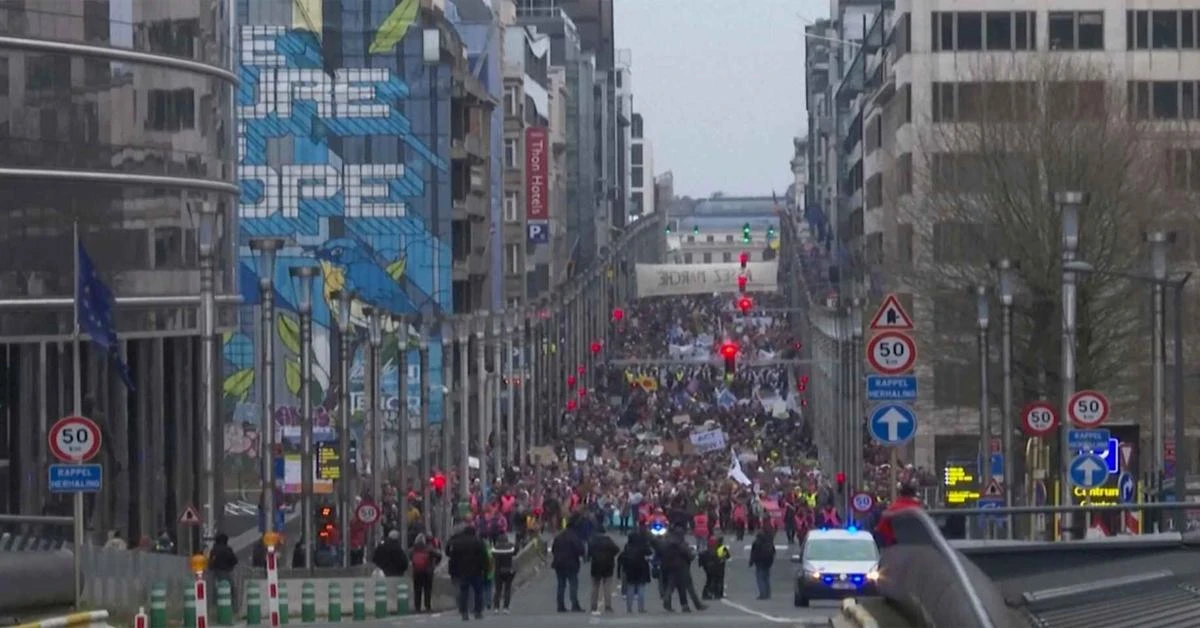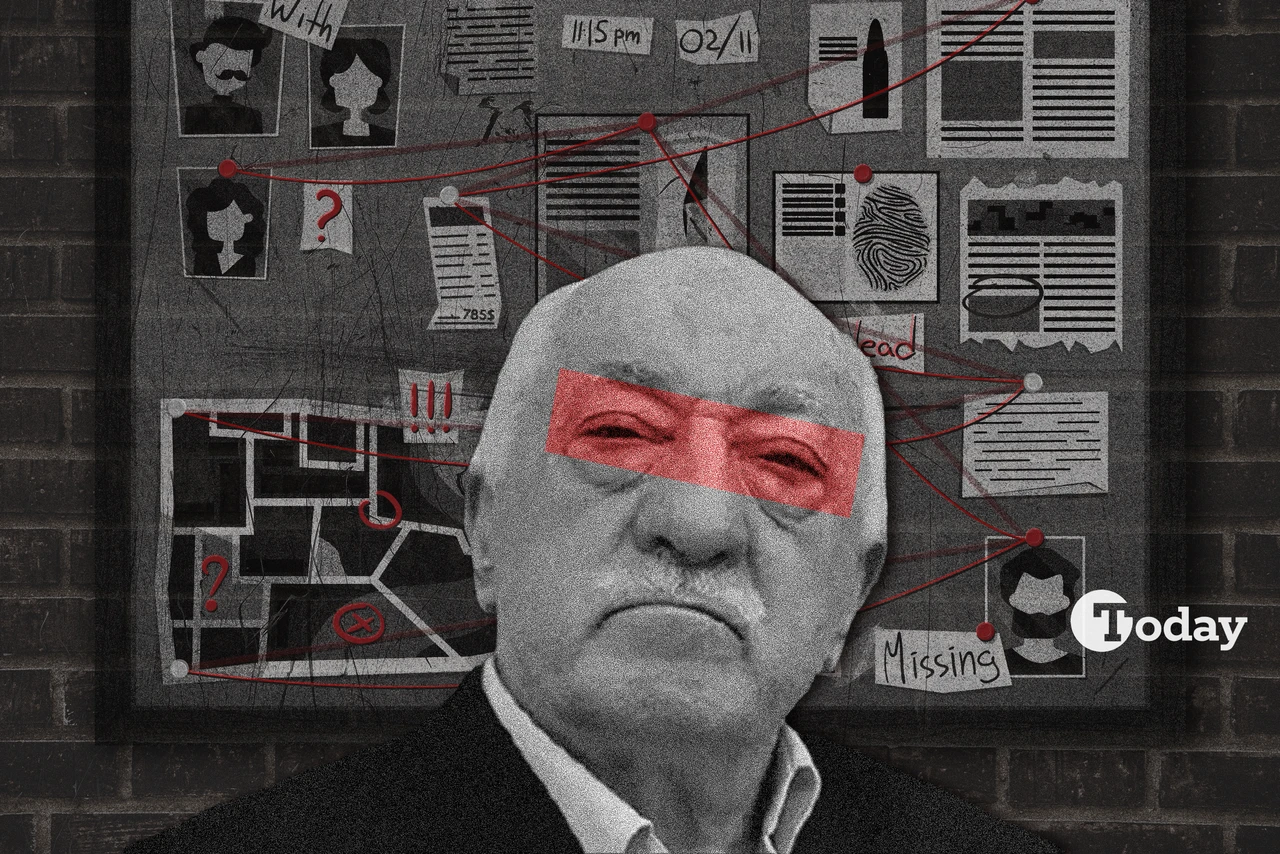Brussels workers protest EU’s spending cuts

Around a thousand workers rallied in Brussels, Belgium’s capital, protesting the European Union’s financial reform targeting a reduction in public expenditure
Approximately a thousand workers demonstrated in Brussels, the capital of Belgium, against the European Union’s financial reform, which aims to reduce public expenditures.
With the call of the FTGB Workers’ Union in Belgium, approximately a thousand people came together in front of the EU Council building in Brussels, where the finance ministers of the EU countries held a meeting.
Protesters held banners that read “We will not pay in any way” and “No to austerity” and shouted slogans criticizing EU policies.
Protesters wearing their union’s red uniforms blocked the roads in the region.
While extensive security measures were taken in front of EU institutions due to the protest, Brussels faced severe public transportation disruptions.
Workers protesting the resumption of austerity policies in Europe argue that EU fiscal reform will push Belgium to restrict social spending.
Workers who want public expenditures not to be reduced demand more taxes to be collected from high-income earners.
Last month, EU countries and the European Parliament agreed to reform the union’s fiscal rules, which limit public spending and budget deficits.
With the agreement, member countries’ public debts and budget deficits will be gradually reduced. In this context, the European Commission will offer a reference trajectory to member countries whose public debt exceeds 60% of gross domestic product (GDP) or whose public deficit exceeds 3% of GDP. This reference trajectory will aim to reduce debt levels, maintain debt sustainability, and keep the budget deficit below 3%.
Belgium, which is among the countries with the highest public debt ratio, will need to tighten its belt through fiscal reform and save around 30 billion euros ($32.79 billion) over the next few years.
For this reason, Belgium is expected to make significant cuts in social expenditures such as health, education, and transportation.
EU member states decided to suspend these rules in 2020 due to the COVID-19 epidemic, rapidly increasing budget deficits and public expenditures. This practice continued with the Russia-Ukraine War and the energy crisis.
Source:Newsroom
#haber#



